
Ian Russell McEwan is a British novelist and screenwriter. In 2008, The Times featured him on its list of "The 50 greatest British writers since 1945" and The Daily Telegraph ranked him number 19 in its list of the "100 most powerful people in British culture".
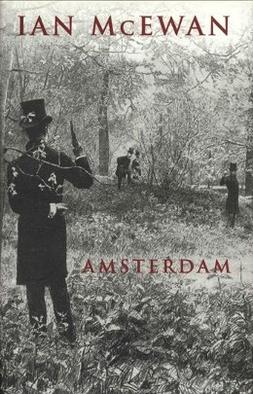
Amsterdam is a 1998 novel by British writer Ian McEwan, for which he was awarded the 1998 Booker Prize.

Saturday (2005) is a novel by Ian McEwan. It is set in Fitzrovia, central London, on Saturday, 15 February 2003, as a large demonstration is taking place against the United States' 2003 invasion of Iraq. The protagonist, Henry Perowne, a 48-year-old neurosurgeon, has planned a series of errands and pleasures, culminating in a family dinner in the evening. As he goes about his day, he ponders the meaning of the protest and the problems that inspired it; however, the day is disrupted by an encounter with a violent, troubled man.
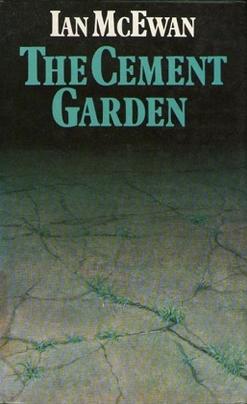
The Cement Garden is a 1978 novel by Ian McEwan. It was adapted into a 1993 film of the same name by Andrew Birkin, starring Charlotte Gainsbourg and Andrew Robertson. The Cement Garden has had a positive reception since its original publication.

Michiko Kakutani is an American writer and retired literary critic, best known for reviewing books for The New York Times from 1983 to 2017. In that role, she won the Pulitzer Prize for Criticism in 1998.

In Between the Sheets (1978) is the second collection of short stories by British writer Ian McEwan.

The Child in Time (1987) is a novel by Ian McEwan. The story concerns Stephen, an author of children's books, and his wife, two years after the kidnapping of their three-year-old daughter Kate.
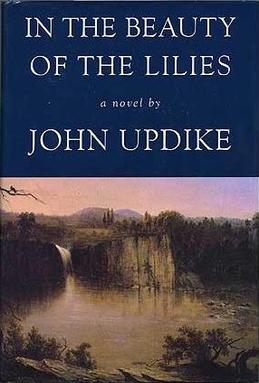
In the Beauty of the Lilies is a 1996 novel by John Updike. It takes its title from a line of the abolitionist song "The Battle Hymn of the Republic." The novel received the 1997 Ambassador Book Award for Fiction.

Falling Man is a novel by American writer Don DeLillo, published May 15, 2007. An excerpt from the novel appeared in short story form as "Still Life" in the April 9, 2007, issue of The New Yorker magazine.

The Innocent is a 1990 novel by British writer Ian McEwan. It received positive reviews from book critics and is considered by some to be one of his best novels.

The Comfort of Strangers is a 1981 novel by British writer Ian McEwan. It is his second novel, and is set in an unnamed city. Harold Pinter adapted it as a screenplay for a film directed by Paul Schrader in 1990, which starred Rupert Everett, Christopher Walken, Helen Mirren and Natasha Richardson. The film is set in Venice.

Race Matters is a social sciences book by Cornel West. The book was first published on April 1, 1993, by Beacon Press. The book analyzes moral authority and racial debates concerning skin color in the United States. The book questions matters of economics and politics, as well as ethical issues and spirituality, and also addresses the crisis in black American leadership.

The Book of Other People is a collection of short stories, published in 2008 by Penguin Books. Selected and edited by Zadie Smith, it contains 23 short stories by 23 different authors, among them Nick Hornby, David Mitchell, Colm Tóibín, Jonathan Safran Foer, Dave Eggers, as well as Smith herself. The collection, as evidenced by the title, focuses on character; the authors were simply asked to "make somebody up". It being a "charity anthology," the contributors to The Book of Other People were not compensated for their writing, and the book's proceeds were given to 826NYC, a non-profit organization dedicated to supporting students with their creative writing skills.

Adam Johnson is an American novelist and short story writer. He won the Pulitzer Prize for his 2012 novel, The Orphan Master's Son, and the National Book Award for his 2015 story collection Fortune Smiles. He is also a professor of English at Stanford University with a focus on creative writing.

CivilWarLand in Bad Decline is a book of short stories and a novella by the American writer George Saunders. Published in 1996, it was Saunders's first book. Many of the stories initially appeared in different forms in various magazines, including Kenyon Review, Harper's, The New Yorker and Quarterly West. The collection was listed as a Notable Book of 1996 by The New York Times, as well as a finalist for the 1996 PEN/Hemingway Award.
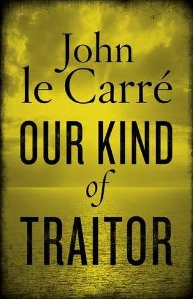
Our Kind of Traitor, published in 2010, is a novel by the British author John le Carré, about a Russian money launderer seeking to defect after his close friend is killed by his new superiors.
None to Accompany Me is a 1994 novel by South African Nobel Winner Nadine Gordimer. The novel follows the motifs and plot framework of a Bildungsroman, exploring the development of the main character, Vera Stark. The novel is set during the early 1990s in South Africa after the release of Nelson Mandela.

The North Water is a 2016 novel by English author and academic Ian McGuire. McGuire's focus of study and field of interest is American realist literature which is defined as, "...the faithful representation of reality". The Guardian's reviewer writes, "The strength of The North Water lies in its well-researched detail and persuasive descriptions of the cold, violence, cruelty and the raw, bloody business of whale-killing." The headline of the Independent Book Review "Ian McGuire, The North Water: 'Subtle as a harpoon in the head, but totally gripping', book review" reinforces the realist aspect of the writing. The North Water was published by Henry Holt and Company (USA) and Simon & Schuster (UK)/Scribner (UK).
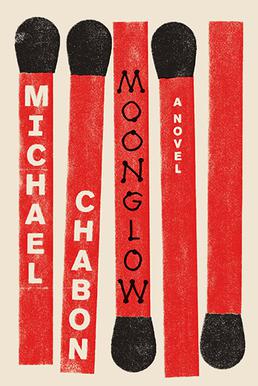
Moonglow is a 2016 novel by Michael Chabon. The book chronicles the life of Chabon's grandfather, a WW2 soldier, engineer and rocket enthusiast who marries a troubled Jewish survivor from France and lives a challenging, wandering life in postwar America. Chabon tells the story using a mixture of strict memoir and creative fiction writing. The narrator functions as a proxy for the author, Chabon.

The Return: Fathers, Sons and the Land in Between is a memoir by Hisham Matar that was first published in June 2016. The memoir centers on Matar's return to his native Libya in 2012 to search for the truth behind the 1990 disappearance of his father, a prominent political dissident of the Gaddafi regime. It won the 2017 Pulitzer Prize for Biography or Autobiography, the inaugural 2017 PEN/Jean Stein Book Award and the 2017 Folio Prize, becoming the first nonfiction book to do so.


















